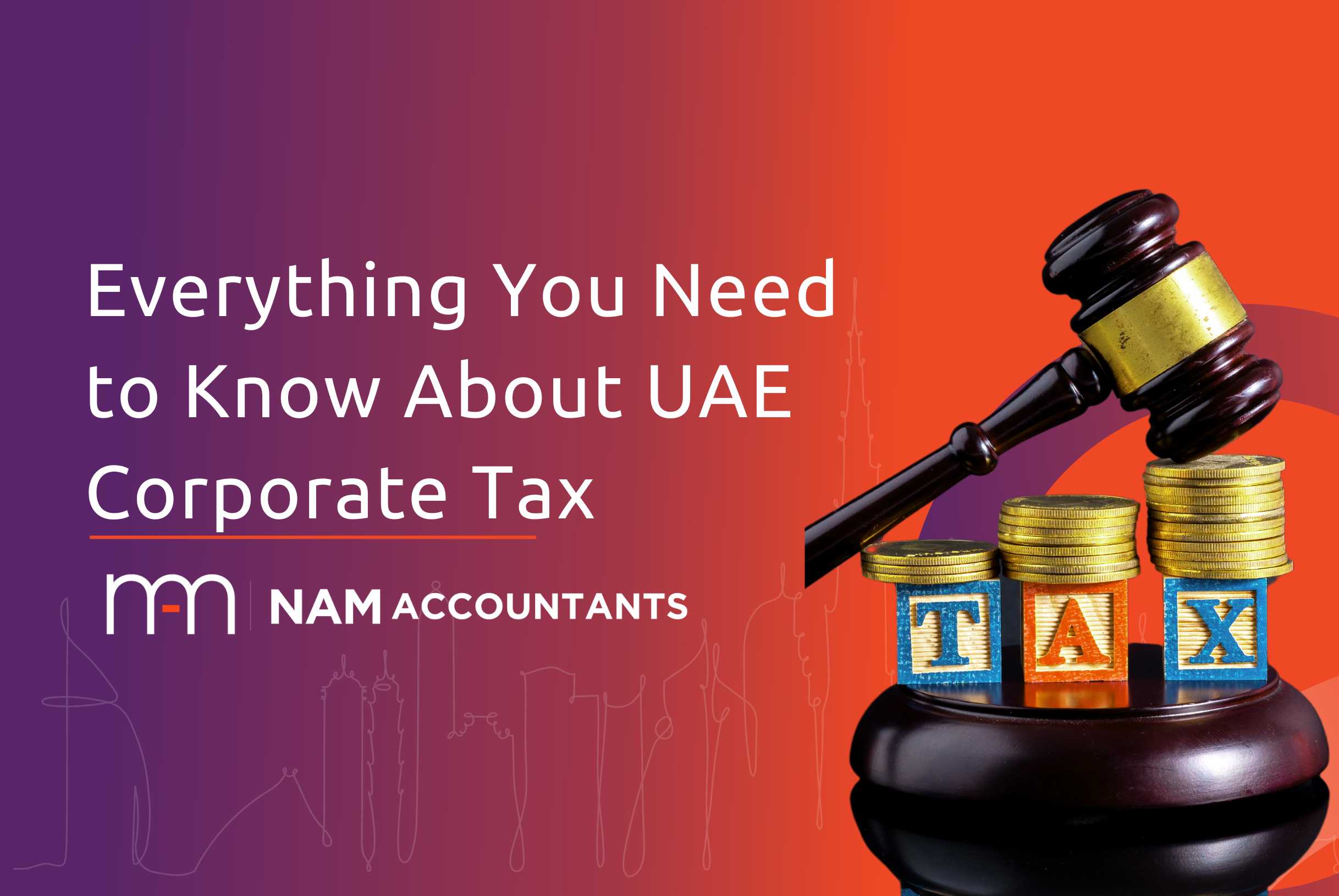Overview of UAE Corporate Tax in the UAE
Introduction and Implementation
In January 2022, the UAE Ministry of Finance announced the implementation of Corporate Tax across the United Arab Emirates, scheduled to take effect from the 1st of June 2023. This development marks a significant step in the country’s fiscal policies, with Corporate Income Tax becoming applicable on or after 1st June 2023, contingent on the financial year of businesses.
Global Context and UAE’s Competitive Edge
While the United Arab Emirates is not alone in adopting corporate tax practices globally, it distinguishes itself with the lowest corporate tax rate, standing at 9%. A comparison with other countries, including the US, India, France, Oman, Kuwait, and Qatar, reinforces the UAE’s favorable corporate tax position. Notably, the Gulf countries, in a G7 meeting in 2021, agreed to a global minimum corporate tax of 15%.
Administrative Responsibilities
The Federal Tax Authority is entrusted with the administration, collection, and enforcement of UAE Corporate Tax. Simultaneously, the Ministry of Finance retains its role as the competent authority for bilateral or multilateral agreements and international information exchange for tax purposes.
Economic Impact and Strategic Transformation
The historical implementation of Corporate Tax in various countries has proven to be a key driver for sustaining economies. In the UAE, the acknowledgment of corporate tax aims not only to enhance corporate governance but also to catalyze the nation’s strategic economic transformation. It positions corporate tax as a pivotal instrument for economic reinforcement.
Objectives and Global Standing
The implementation of Corporate Tax aligns with the UAE’s objectives to solidify its position as a global hub for businesses and investments. The broader goals include accelerating the country’s development, adhering to international standards for tax transparency, and preventing unauthorized tax practices.
Exemptions and Thresholds
Businesses and Incomes Exempt from Corporate Tax
With a profit threshold set at AED 375,000, businesses exceeding it are obligated to pay corporation tax. However, certain entities and income sources are exempt, including:
- Individuals, with income derived from employment, real estate, share investments, or personal sources unrelated to trade or enterprise.
- Foreign investors not conducting business in the UAE.
- Free zone businesses meeting regulatory conditions.
- Capital gains and dividends from qualifying shareholdings.
Corporate Tax Liability
All businesses with a net taxable profit exceeding AED 375,000 are subject to corporate tax, with a set proportion of their net profit payable. UAE companies, whether incorporated or managed in the UAE, and certain entities in free zones fall under this category. Notably, a 0% corporate tax rate is applicable for small firms and start-ups with a net profit below AED 375,000.
Deductible and Non-Deductible Expenses
Determining Taxable Income
Corporate tax calculations involve adjustments for certain expenses, both deductible and non-deductible. Deductible expenses include depreciation, business setup fees, and interest costs, while non-deductible expenses are restricted to specific criteria to prevent abuse or excessive deductions.
Provisions for Deduction
Deductible expenses such as 50% of client leisure costs and payments to a mainland branch of a Free Zone entity provide businesses with flexibility in managing their tax liabilities.
Corporate Tax Rates and Calculation
Tiered Tax Structure
As per the Ministry of Finance, corporate tax rates are structured as follows:
- 0% for taxable income up to AED 375,000.
- 9% for taxable income above AED 375,000.
- An additional, yet unspecified, tax rate for multinationals meeting the ‘Pillar two’ criteria of the OECD’s Base Erosion and Profit Shifting Project.
Self-Assessment Process
Corporate tax calculation and filing in the UAE are conducted on an annual basis, with taxable persons required to file a Corporate Tax Return with the Federal Tax Authority. The process involves adjustments to accounting income for exemptions and non-deductible expenses, resulting in a 9% corporate tax on net profits recorded in the financial accounts of the company.
Financial Records and Registration
Compliance and Documentation
Businesses in the UAE must ensure corporate tax compliance by maintaining financial records that explain the information outlined in the corporate tax return. Entities exempt from UAE corporate tax must also keep records to determine their exempt status. For corporate tax registration, documents such as trade license copies, passports, and an annual financial audit report are required.
Grouping and Carryforward
For tax efficiency, a group of companies meeting specific conditions can form a tax group, filing a single tax return for the entire group. Additionally, excess tax losses may be carried forward and used against taxable income in future years.
Free Zone Companies and Tax Considerations
Unique Regimes and Incentives
Corporate income tax has a nuanced impact on free zone companies, as they operate under special regimes within the legal framework of designated free zones. While corporate tax does not significantly affect free zone companies, multinational businesses located in free zones are subject to corporate tax if their net profit exceeds AED 375,000.
Precautions and Considerations
Strategic Tax Planning
Business entities can adopt various precautions to minimize tax burdens, such as accelerating depreciation, investing in tax-efficient assets, and introducing incentives for employees. Proper tax planning before filing is essential to align with the UAE’s tax legislation, court rulings, and business objectives.
Conclusion: Attractiveness for Foreign Investments
Maintaining Attractiveness
Despite the introduction of corporate tax, the UAE remains an attractive destination for foreign investments. The country’s low corporate tax rate, coupled with its high standard of living, futuristic infrastructure, and strategic geographical location, positions it as a lucrative opportunity for businesses.
Golden Opportunities
In conclusion, the implementation of Corporate Tax in the UAE, scheduled for June 2023, should not deter investments. Instead, it opens doors to a spectrum of opportunities, making the UAE an enticing hub for businesses willing to leverage its advantageous tax regime.























